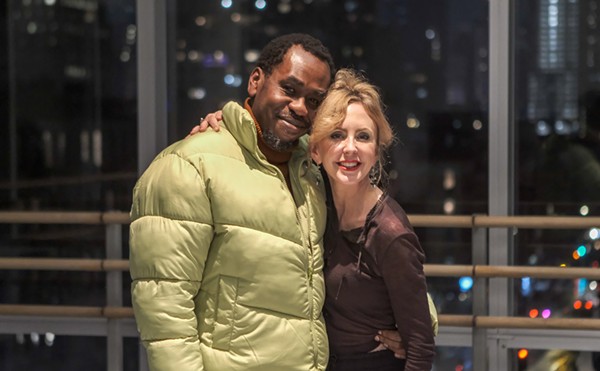Africa, the true motherland
The Human Family Tree
9 p.m. Sunday, Aug. 30
National Geographic Channel
Most of us can trace our respective family histories back to our great-grandparents — maybe even farther. But to track back our lineage for 60,000 years, we're going to need scientists.
That's where The Human Family Tree comes in handy.
This illuminating National Geographic Channel special begins at a street fair in ethnically diverse Queens, N.Y., where representatives of the Genographic Project collected DNA swabs from random people to determine their origins. It ends with several dozen of them standing on a world map, demonstrating their ancestors' migratory patterns.
In between those shots, there's plenty of explaining of how the entire human race descended from a small group of Homo sapiens that emigrated from Africa 200,000 years ago. And theories are proffered as to how modern people ended up where they are today.
The thesis seems self-evident: If you go back far enough, we're all related. But to see it mapped out so simply and neatly makes the subject credible and fascinating. There's also a subtle humor in the choice of narrator for The Human Family Tree — Kevin Bacon, he of the "six degrees of separation" celebrity game. Bacon tells us that every man living today carries a chromosome that originated with one man in Africa 60,000 years ago, and every contemporary woman's DNA emanates from one woman who lived in Africa 150,000-200,000 years ago.
The reason for the difference in years is not fully explained, but the show's website (www.channel.nationalgeographic.com) offers more details about the overall project. The two-hour program does an excellent job showing how the earliest human might have gone on to populate the globe, the decision to migrate caused perhaps by climate change or the need to find food and water.
It also offers what sounds like reasonable explanations for some of our outward distinctions, such as skin tones. Races that lived in warm regions needed dark skin to be shielded from the sun; those in dark climates needed light skin to let in vitamin-rich sunlight.
The people we meet in Queens all seem to have high hopes that their DNA tests will yield important clues to their history. And for some — like the African-American man who discovers his European ancestry — the findings are surprising and noteworthy.
Others think the project might help bridge our racial and ethnic divides, which may be an extreme example of cockeyed optimism. But perhaps the time has come for science to break down barriers. "I'm hoping," one participant said, "that it will open people's eyes and make us more tolerant of each other."
[email protected]
















